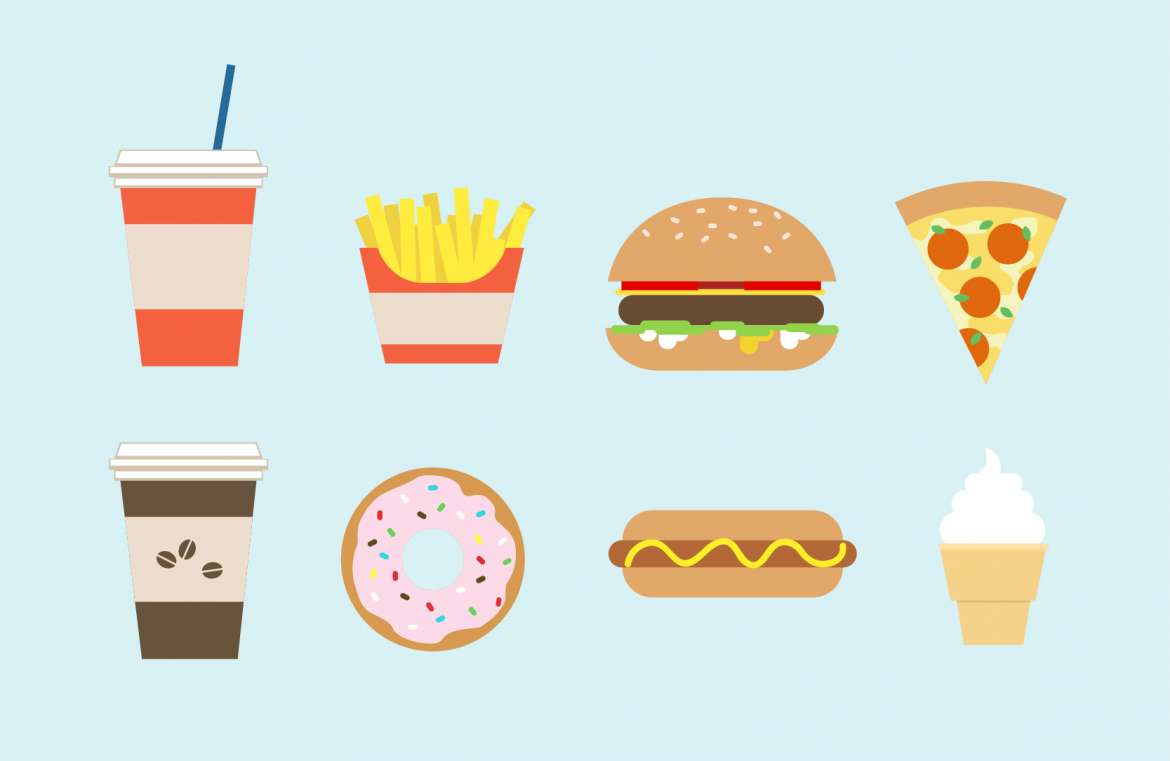In this post I want to talk about one of the most controversial topics there is in fitness and nutrition: Cheat days and cheat meals.
Let’s start with the smaller version of the two: the cheat meal.
Cheat Meals Explained
Let’s assume you have been “eating clean” over the last few days, preparing healthy meals like chicken breast with rice and vegetables or fish with sweet potatoes. Now you’re wondering if it would be okay to sneak in that Snickers bar or pizza at the end of the week without breaking your diet.
That’s what cheat meals are all about: Some junk food that you get to eat (usually on weekends) as a reward for adhering to your diet for most of the week.
So, what’s the deal with cheat meals? Are they fine, or will they compromise your results? Will some high sugar ice cream or a high fat croissant hurt your muscle building or fat burning progress?
The short answer is: No, as long as you keep your calories and macros in check.
Remember what I teach in my courses and on my blog: Calorie balance and macronutrients are the most important aspects of your fitness diet. Your body does NOT look at individual foods, but your diet as a whole.
It does not evaluate the individual foods you eat and automatically burns fat if it’s a clean food or stores fat if it’s an unhealthy food. What matters is the total of all the foods you eat and the total energy and nutrients they contain.
Cheat Meals Aren’t A Problem (When Done Right)
If you’re eating clean fulfilling your nutritional requirements through traditional “clean foods” most of the time and then have some ice cream, your body will not stop building muscle or regain all the fat you lost so far. Proper dieting is all about the big picture, which means watching your total calories and macronutrients.
That’s why I always tell my students that 80-90% of their diet should come from quality whole foods and the remaining 10-20% can come from whatever foods they like as long as it fits their total daily calories and proteins, carbs and fats.
This will ensure that your needs are being fully met when it comes to essential amino acids, vitamins and minerals, fiber and essential fats, but it also leaves you with 10-20% of your total daily macronutrient to “spend” on whatever foods you want.
As long as you stick to the basics of correct dieting, “cheat meals” are not going to magically cause you to get fat or lose muscle. I know that a lot of fitness gurus on instagram or youtube preach that they eat clean 24/7 and that’s fine if they have the time and energy to do that. But the average person is often under a lot of stress and requires a more flexible approach to dieting.
Just remember that this isn’t a free ticket to begin eating tons of ice cream and pizza. The “flexible foods” that you include still need to reasonably fit into your overall diet as a whole in terms of calories/protein/carbs/fats.
The Major Problem With Cheat Days
And that’s the problem with cheat days instead of cheat meals. Cheat days are entire days where you don’t watch your calories and macro intake and just eat whatever you like.
In its simplest form fat loss always comes down to a proper calorie deficit based on your total calorie intake versus your total calorie expenditure.
That means, even though you don’t have to be in a calorie deficit every day, over the course of a few days and weeks it has to be there, to get your body to burn fat.
Individual cheat meals won’t significantly affect this but entire days can. For example, let’s assume you were following a diet with a deficit of around 500 calories below your maintenance level.
If you followed this diet for six consecutive days, you would have created a total deficit of 3000 calories. If your cheat day now falls on the 7th day, every calorie that you eat above your maintenance level will directly reduce that 3000 calorie deficit you had in place.
Everyone is different of course and has a different appetite but trust me when I say you can easily eat 1500 calories above maintenance on your cheat day. That would already cut your weekly deficit in half.
Now imagine going all out and eating 2000 or even 3000 calories above maintenance. That way you lose most of the progress you made throughout the week. All it takes are a few high calorie meals and maybe some cake or ice cream for dessert.
So to wrap things up, always keep an eye on your daily and weekly calories. To lose fat make sure you stay at a deficit and as long as you account for the right amount of proteins, carbs and fats you will be fine. One or two minor cheat meals usually won’t negatively affect this but entire cheat days most definitely can. Of course, at the end, the best approach is to develop a flexible diet that fits your individual lifestyle and preferences.



